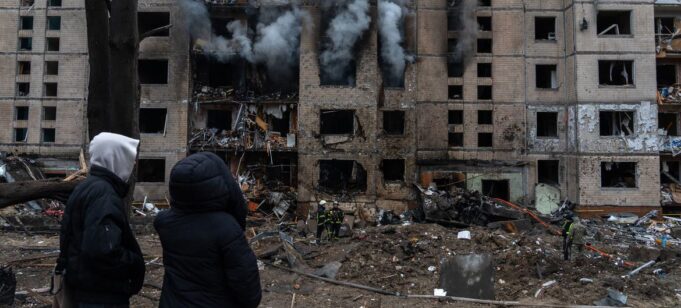With the war in Ukraine about to enter its third year, the damage wrought by the conflict to the country and to global peace and security is becoming increasingly clear, the UN’s top political affairs official said on Feb. 6.
Briefing the Security Council, Political and Peacebuilding Affairs chief Rosemary DiCarlo told ambassadors: “We are no closer to the end of this illegal and unjustified war.”
“With each passing day, the damage the conflict has done—and is doing—to Ukraine, but also to global peace and security and international law, becomes increasingly clear,” she said, adding:
“Only a solution in line with the UN Charter, international law and UN General Assembly resolutions will achieve a just and lasting peace.”
Ms. DiCarlo highlighted the work of humanitarians, including local and women-led initiatives to deliver aid to those in need.
She noted the $4.2 billion humanitarian appeal launched by the UN and partners to support affected communities throughout Ukraine, Ukrainian refugees and host communities.
Mounting death toll
Since Russia’s full-scale invasion in February 2022, 30,041 civilian casualties have been confirmed by the UN Human Rights Office (OHCHR), including 10,382 killed and a further 19,659 injured. The actual number is likely higher.
The number of civilian casualties increased significantly in December 2023 and January compared with previous months, reversing a trend of decreasing civilian casualties earlier in the year, the senior UN official said.
OHCHR verified that 158 civilians were killed and 483 injured just in January.
“I must underscore once again that attacks on civilians and civilian infrastructure, wherever they occur, are prohibited under international law. They are unacceptable and must stop immediately,” Ms. DiCarlo said.
UN atomic watchdog to visit Zaporizhzhya Plant
Meanwhile, in Ukraine, Rafael Grossi, the head of the UN International Atomic Energy Agency (IAEA) is set to visit the Zaporizhzhia Nuclear Power Plant—Europe’s biggest.
It will be his fourth visit to the plant, whose six reactors have all been in shutdown for nearly 18 months, but still hold large amounts of nuclear fuel that must be kept adequately cooled, the agency said in a news release.
The aim of the mission is to assess the status of current power and cooling systems essential for the safety of the plant and the levels of qualified staff on site.
According to IAEA’s latest update on the situation in Ukraine, a new announcement from the occupied plant stated that no employees of Ukraine’s national operator Energoatom would be allowed to continue working at the site.
“The fate of the biggest nuclear power plant in Europe and the consequences of a problem there exceed a merely technical aspect; these are issues of a global concern for international peace and security,” Mr. Grossi said.
“This is why, for me, beyond the technical aspects, it is also important to have a conversation on the fundamental implications of what is happening there—now and in the future,” he added.
(UN News)













